The City of Chicago has announced plans to remodel and convert the Diplomat Motel at 5230 N Lincoln Avenue in Lincoln Square. Located towards the northernmost edge of the neighborhood, the building has served as one of the few remaining motels in the city with a unique neon mural on its streetfront. Now the City Council has voted to approve the purchase of the property in order to convert it into stabilization housing in collaboration with the Department of Public Health.
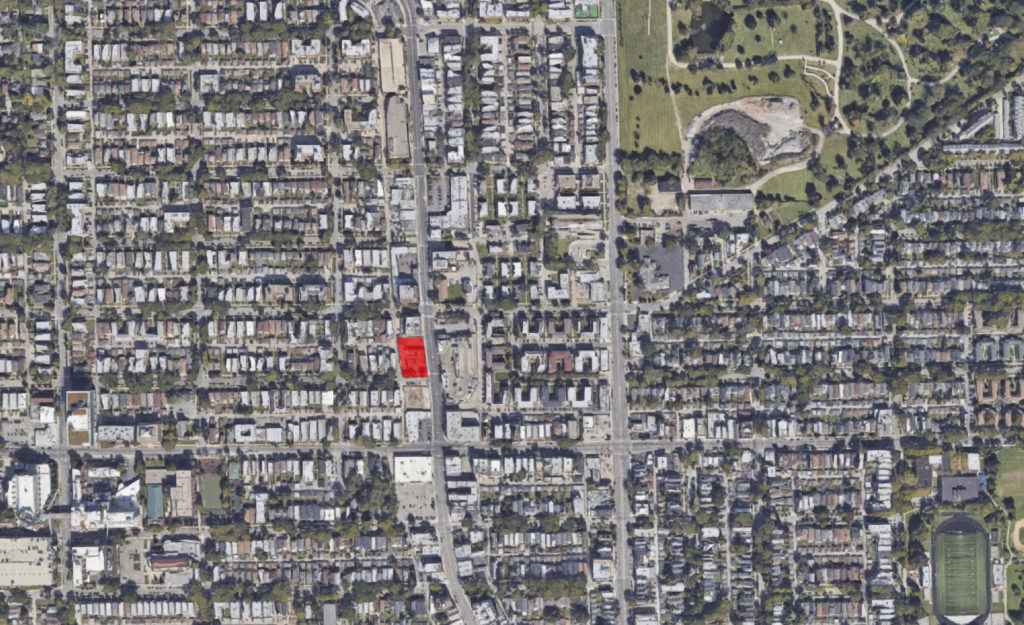
Site context map for 5230 N Lincoln Avenue via Google Maps
Currently there are roughly 65,600 Chicagoans experiencing homelessness in some way in the city with many being unsheltered, some of which frequent the motel already according to its owner. Thus the conversion is part of the department’s newly launched Stabilization Housing Pilot Program, building upon a program during the pandemic that utilized vacant hotels and successfully transitioned many into permanent housing. The initiative will serve those cycling through the justice and emergency systems due to mental health, substance abuse, and more according to the Tribune.
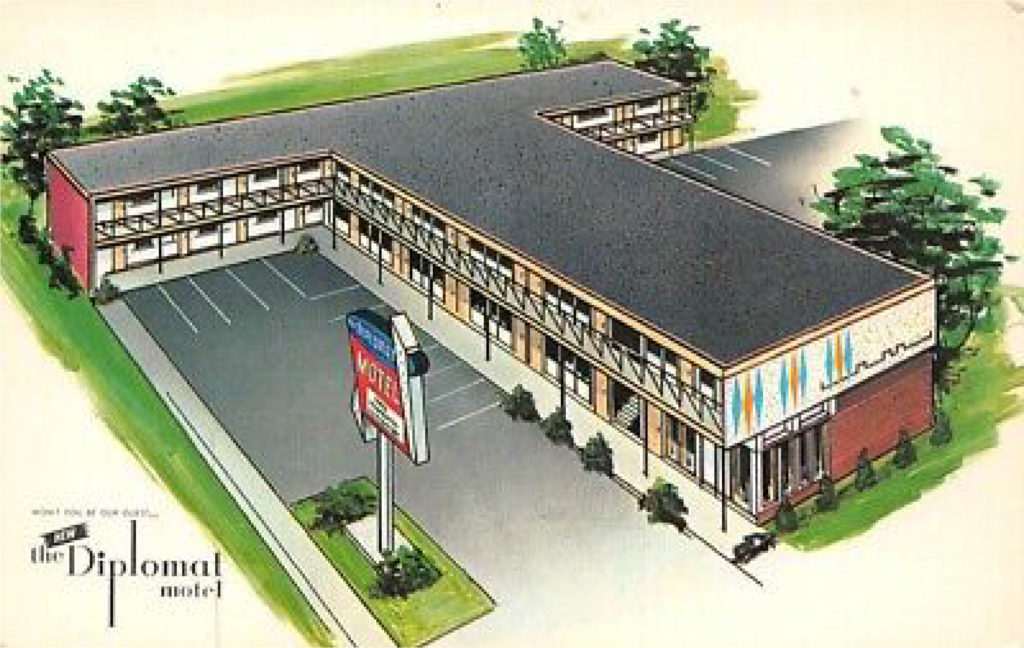
Vintage postcard of the Diplomat Motel via HipPostcard
The project would require minimal effort to convert its 20,000 square-feet and 46-motel rooms into 40 rooms of special housing, these would include on-site supportive services such as medical and mental health. Residents would be offered stays of three to six months in length with rigorous treatment programs, receiving three-meals a day, laundry, and security services. In total the new project hopes to serve upwards of 120-people per year while also helping them find employment.
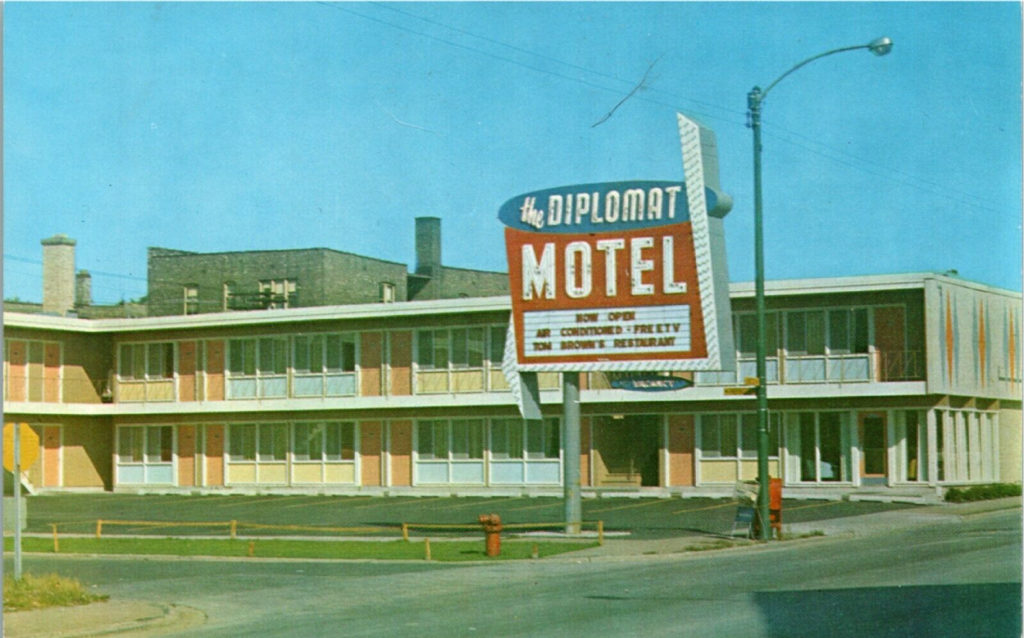
Vintage postcard of the Diplomat Motel via HipPostcard
The pilot program recently received $12 million in funds from the American Rescue Plan Act for its first few years of operation and staff, with the city contributing $30 million for purchase and renovation of The Diplomat and five other properties. Purchasing the motel will cost the city $2.9 million and less than $1 million to renovate. The city hopes to close the deal soon and begin work by the end of the year, hoping to begin operations by next year.
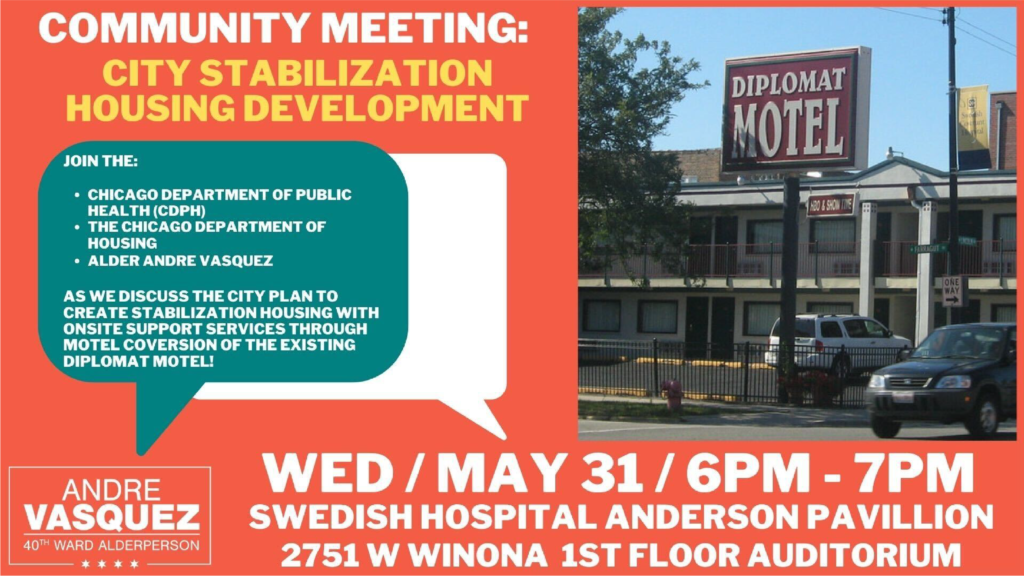
Poster for conversion community meeting via 40th Ward
It is worth noting around 1,200 people chronically cycle through the justice and emergency systems costing the city over $300 million over four years, or around $63,000 per person per year. In comparison, assuming all five-additional motels also serve roughly 100 people per year for a total of 600, the program will cost the city around $7,000 per person per year based on the program’s estimated $4 million per year cost.
More information on the project’s community meeting can be found in this Block Club article.
Subscribe to YIMBY’s daily e-mail
Follow YIMBYgram for real-time photo updates
Like YIMBY on Facebook
Follow YIMBY’s Twitter for the latest in YIMBYnews

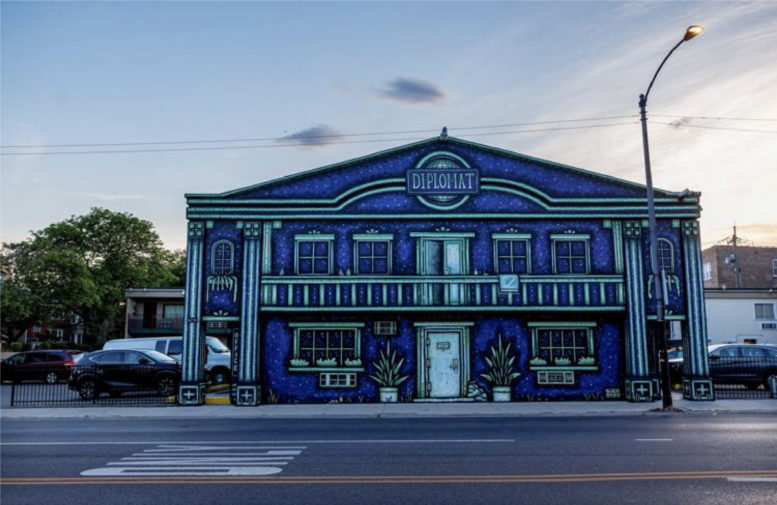
Love this initiative by the city building on similar success during the pandemic.
Very hard to believe anyone ever found this place beautiful enough to make multiple postcards of it. That’s just a step above making a postcard for some random strip mall.
I have stayed in motels like this across the country (I’m getting up there, this was in the 60s, before the budget hotel chains reduced most of the mom and pop independent motels to fleabags). The motels themselves paid for the postcards, for advertising. Every motel had a stack, which you would buy to write on and send back home, in the age before cell phones when long distance calls were an extravagant expense. Most places would sell stamps and put it on the mail for you as well.
I would be curious about the renovation history of the motel. At one point, windows were removed from the street facade. It looks like landscaping may have been removed too. It seems like subsequent renovations actually made the building worse, from a technical planning and architectural perspective.